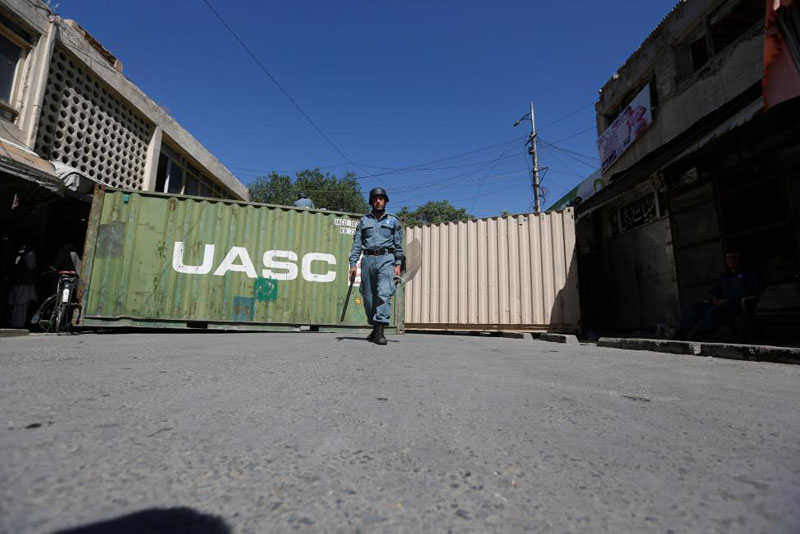Kabul locked down as Afghan authorities face power line protest
KABUL: Stacked-up shipping containers blocked the streets leading to Kabul's government and diplomatic area on Monday as Afghan authorities prepared for a rally by thousands of members of the Hazara minority over a multi-million dollar power line project.
Demonstrators are demanding that the route for the 500 kV transmission line linking Turkmenistan with Kabul be changed to pass through two provinces with large Hazara populations, an option the government says would cost millions and delay the badly needed project by years.
As well as the potential for violence, the rally underscores the political tensions facing Ghani's government as it fights the Taliban-led insurgency and tries to get an economy shattered by decades of war back on its feet.
The latest protest follows one in November against the murder of a group of Hazara people that became the biggest anti-government demonstration in Kabul for years.
Organizers have urged protesters to "shake the palace of despotism". Authorities have closed access to the presidential palace, fearing a repeat of last year's violence, when demonstrators tried to scale the walls.
The mainly Shi'ite Hazara have long faced persecution but they are politically well organized and thousands of demonstrators are expected.
Hazara leaders, who include senior government members, say the route chosen for the transmission line discriminates against their people, something President Ashraf Ghani and national power company DABS deny.
Only around 30 percent of Afghanistan is connected to electricity. Modernizing the creaking power system, which is subject to frequent blackouts, has been a top priority.
The transmission line, intended to provide secure power to 10 provinces, is part of the wider TUTAP project backed by the Asian Development Bank to link the energy-rich Central Asia republics of Turkmenistan, Uzbekistan and Tajikistan with Afghanistan and Pakistan.
Under current plans, due to implement by 2018, the line would pass from a converter station in the northern town of Pul-e-Khumri through the mountainous Salang pass to Kabul.
Demonstrators want an earlier version of the plan that would see a longer route from Pul-e-Khumri through the provinces of Bamyan and Wardak to the west of Kabul.
DABS says the current plan ensures ample power to Bamyan and Wardak and that switching the route would add tens of millions of dollars to the cost and delay the project by as much as three years, leaving millions without secure electricity.
It has invited Hazara representatives to join a commission to review the plan.






